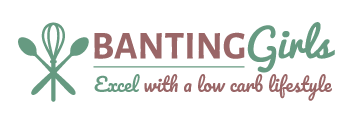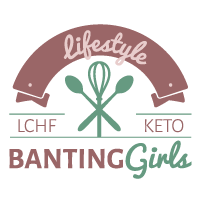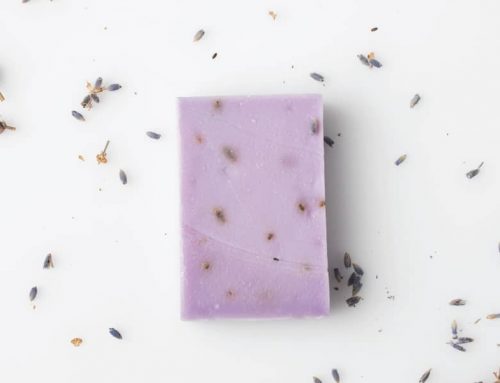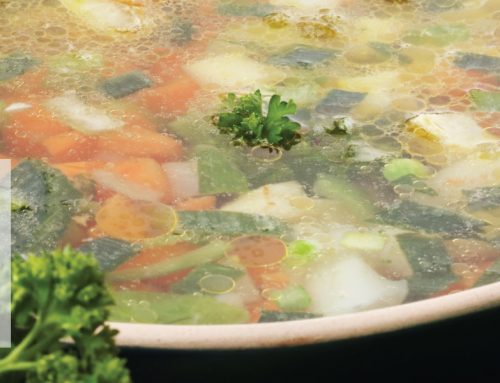To all our members observing Ramadan and fasting during this Holy Month, Ramadan Mubarak!
Ramadan is not just a month of fasting, but also a time for reflecting, appreciating and being mindful of what you eat. During this month, Muslims fast from sunrise to sunset, very similar to intermittent (16:8) fasting, with one exception. We refrain from eating or drinking during the fasting period, including water, tea and coffee.
Fasting itself has been around for ages. It is by far the oldest dietary intervention in the world. It can have a profoundly beneficial influence on your health, including efficient weight loss, reversal of type 2 diabetes and more.
At BantingGirls we strongly believe that not only Muslims can benefit from intermittent fasting. It offers a number of benefits to both the mind and body. And contrary to popular belief, water fasting is safe for most people.
DISCLAIMER
Note that fasting is not recommended for people who are underweight or malnourished, people on insulin, growing children or pregnant/breastfeeding moms as they must eat when they are hungry and if on Insulin. Always eat to appetite.
Intermittent fasting means giving your body time to digest and utilise your food before eating again. You aren’t changing what you eat, but rather when you eat. When you do eat, you should still eat until satisfied. It’s not about deprivation, it’s about healing and giving your body a chance to utilise the food you eat properly before eating again.
Every time you eat your body produces insulin. The more you eat the higher your insulin levels will be. For a person with insulin resistance this is bad. Fasting gives your body relief from high insulin levels.
The severity of your insulin resistance should play a role in how often you fast. People with insulin resistance (IR) have a reduced capacity to burn carbs as a fuel, both during exercise and when at rest, or to store it as glycogen, therefore most carbs get stored as fat. It takes about 10 to 12 hours to use up the glycogen stores, so even if you are lowering your carbs, but still eating three meals a day and are severely IR, and eating quite a lot of fat, you may never deplete the glycogen stores to get to burning the fat – and your body will either keep putting on weight or plateauing. Fasting gives your body time to use up the glycogen stores so that you can start burning the fat stores. In general, the longer you fast for, the easier it will be for your body to utilise the fat stores. Your body also responds better to variety. It’s quite a good idea to change up your fasting routine so that your body doesn’t have a chance to get used to it.
Remember to consult your doctor before embarking on any dietary change, especially if you are on medication.
How do you get started with fasting?
It’s important to start off slowly. BantingGirls prefer starting with a 16:8 intermittent fast and see how your body responds to it. Eat in a space of 8 hours and allow about 16 hours of no eating. Fasting during Ramadan means breaking your fast at around 7:00pm and eating until 3:00am. Stop eating when full. And always be mindful.
Make sure that you incorporate enough fat into your meals to sustain you through the periods that you aren’t eating. Eating a handful of nuts or a piece of cheese to break the fast might be a good idea to prevent over-eating. Allow half an hour for this to digest before eating your proper meal.
Once you have mastered the 16:8 intermittent fast, you can try fasting for longer periods of time.
What can you eat or drink during the fasting period?
The whole point of a fast is to prevent the body from producing insulin, therefore no food should be consumed during the fasting time.
There are many different rules for fasting. During Ramadan, for example, fasting is observed from sunrise to sundown and no food or beverages are taken. For regular fasting, the following can be considered:
All calorie-containing foods and beverages are withheld during fasting. Be sure to stay well hydrated throughout your fast. Water, both still and sparkling, is always a good choice. Aim to drink two liters of water daily, especially if you’re staying in a place with high temperatures and humidity such as United Arab Emirates. As a good practice, start every day with eight ounces of water to ensure adequate hydration as the day begins. If you’re fasting during Ramadan, take small sips to break your fast. BantingGirls also love to add a slice of lemon or lime, as it has its own health benefits too.
All types of tea are excellent, including green, black, oolong and herbal. Teas can often be blended together for variety, and can be enjoyed hot or cold. You can use spices such as cinnamon or nutmeg to add flavor to your tea. Adding a small amount of cream of milk is also acceptable. Sugar, artificial sweeteners or flavors are not allowed. Green tea is an especially good choice here. The catechins in green tea are believed to help suppress appetite.
Coffee, preferably decaffeinated, is also permitted. A small amount of cream or milk is acceptable, although these do contain some calories. Spices such as cinnamon may be added, but not sweeteners, sugar or artificial flavors.
Homemade bone broth, made from beef, chicken or fish bones, is a good choice for fasting days. Vegetable broth is a suitable alternative, although bone broth contains more nutrients. Adding a good pinch of sea salt to the broth will help you stay hydrated. The other fluids—coffee, tea, and water—do not contain sodium, so during longer fasting periods, it is possible to become salt-depleted. Although many fear the added sodium, there is far greater danger in becoming salt depleted. For longer fasts such as the twenty-four- and thirty-six-hour variety, it probably makes little difference. All vegetables, herbs or spices are great additions to broth, but do not add bouillon cubes, which are full of artificial flavors and monosodium glutamate. Beware of canned broths: they are poor imitations of the homemade kinds. (See our chicken broth recipe here.)
How do I break my fast?
Break your fast gently. There is a natural tendency to eat large amounts of food as soon as the fast is over, however, overeating right after fasting may lead to stomach discomfort. While not serious, it can be quite uncomfortable. This problem tends to be self-correcting.
Try breaking your fast with a handful of nuts or a small salad to start. During Ramadan we love to break our fast with some homemade bone broth. Then wait for 15-30 minutes. This will usually give time for any waves of hunger to pass, and allow you to gradually adjust. Short duration fasts (24 hours or less) generally require no special breaking of the fast, but certainly for longer fasts it is a good idea to plan ahead.
What can you eat during the eating period of the fast?
A Low Carb Healthy Fat lifestyle should be followed when not fasting. Make sure to eat real food free from sugar and processed carbs. Fill up on vegetables, especially green leafy ones, eat moderate protein and enough fat to keep you satiated.
There are also natural products that can help suppress hunger and help you during your periods of fast. The top five natural appetite suppressants listed by Dr Jaso Fung are:
Water
As mentioned before, start your day with a full glass of cold water. Staying hydrated helps prevent hunger. (Drinking a glass of water prior to a meal may also reduce hunger.) Sparkling mineral water may help for noisy stomachs and cramping.
Green tea
Full of anti-oxidants and polyphenols, green tea is a great aid for dieters. The powerful anti-oxidants may help stimulate metabolism and weight loss.
Cinnamon
Cinnamon has been shown to slow gastric emptying and may help suppress hunger. It may also help lower blood sugars and therefore useful in weight loss. Cinnamon may be added to all teas and coffees for a delicious change.
Coffee
While many assume that caffeine suppresses hunger, studies show that this effect is likely related to anti-oxidants. The caffeine in coffee may also raise your metabolism further boosting fat burning.
Chia Seeds
Chia seeds are high in soluble fiber and omega 3 fatty acids. These seeds absorb water and form a gel when soaked in liquid for thirty minutes, which may aid in appetite suppression. They can be eaten dry or made into a gel or pudding.
What are the positives to fasting and Ramadan?
Some of the positive effects of intermittent fasting on the body include:
- Better digestion – The month of Ramadan is a great time for our digestive system, which is responsible for the metabolism process of food, to get some rest.
- Decreased insulin production
- Increased insulin sensitivity
- Reduced inflammation
- The ability for the brain to cope with stress better and to resist disease
- Increased learning and memory ability
- Weight loss
- Breaking through a weight loss plateau
- Improved concentration
- A boost in energy levels
- The ability for the cells to better repair damages to DNA
- The creation of new, healthy cells as old ones die off
- Improved sleep
- Increased ability for the body to fight cancer, heart disease and diabetes
And finally, reduced hunger and increased appetite control. During the first week you will be surprised at how little food you actually need to be full. For some people it can lead to a whole new way of consuming food.
Tips for intermittent fasting
- Become fat-adapted first on a low-carb diet
- Follow the 16:8 fast – fasting for 16 hours and eating for 8 hours
- Eat low-carb during those 8 hours
- Eat your biggest meal in the evening, for regular intermittent fasting. If you’re fasting in Ramadan, eat your biggest meal at Suhoor time (the time before sunrise).
- Break your fast with something that’s satisfying. Choose what you eat wisely – fatty foods like avo, nuts, and cheese will help you reach satiety and prevent you from wanting to overeat
- Be careful of your portion sizes – it can be easy to overeat
- Have as much water and tea as you want
- Take two tablespoons of apple cider vinegar in the evening to lower morning blood sugar levels
- Be wary of the amount of cream/ milk you have in your tea/ coffee as these contain carbs and can stimulate insulin production – black is always best.
- Don’t eat too much protein as it also spikes insulin (about 20g – 30g of net protein at each meal is enough)
- Incorporated fermented foods into your diet
- Include turmeric to help reduce inflammation
- Eat when you are hungry – sometimes you might have to break the fast sooner in the beginning if you are hungry, rather do that, and try for longer the next time
- Start off slow and then gradually improve the fasting period if you find this easier
- Reduce stress and get enough sleep
- Be gentle on yourself – don’t push yourself too hard
The mental benefits of fasting during Ramadan are also huge. It is a chance to learn how to thrive and be grateful for whatever comes your way.
You get an opportunity to be in a state of self-discipline and self-control. You start to evaluate things differently and become mindful about what you eat, how you treat people and about change. Ramadan teaches us to avoid anger and to forgive someone’s and your own mistakes. It is also strongly encouraged to help those in need and share your happiness with everyone.
Ramadan is a time to quit bad habits and start making healthier choices. While fasting, you start to refrain from bad language and bad thoughts. It’s a reminder of how many things in life we take for granted.
Are there any negatives to fasting?
Dehydration
A lack of salt and too much caffeine can cause dehydration. It is important to keep drinking non-caffeinated fluids and to make sure that you have enough sea salt, especially during long fasting periods.
Headaches
Dehydration can lead to headaches. Drink lots of water to prevent this from happening.
Muscle Cramps
Make sure that you are getting enough fluid and sodium. Homemade bone broth with added sea salt is a good remedy for this.
Constipation
Eat enough green leafy vegetables, fats such as avocados, seeds and nuts, and vegetables with the skin still on to prevent constipation.
Remember, it is advisable to consult your health care practitioner before embarking on a change of diet.
Test out a few fasting regimes and find the one that suits you best. If you are feeling good and showing signs of improvement you are on the right track. Give yourself one month: It takes time for your body to get used to fasting. The first few times you fast may be difficult, so be prepared. However, don’t be discouraged. It will get easier.
If you are new to fasting and would like to know more, please contact us on Facebook or via our Contact page and we can provide you with more information.
Lastly, remember LCHF is not a diet, it is a lifestyle change.
Excel with a Low Carb Lifestyle. Until next time!
Eunice & Gina
BantingGirls





